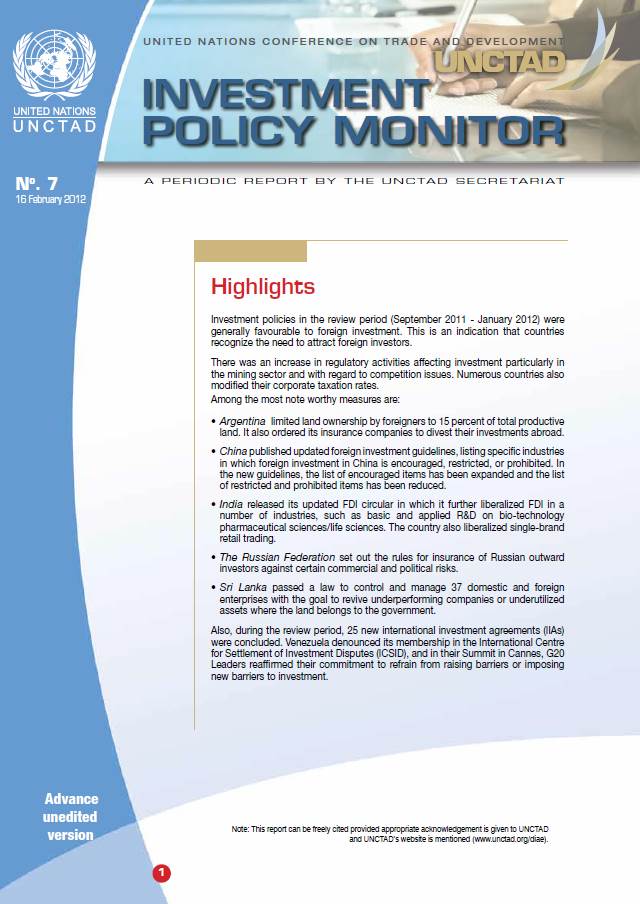Investment Policy Monitor No. 7
The Investment Policy Monitor provides policymakers and the international investment community with up-to-date information about the latest developments and salient features in foreign investment policies.
Investment policies in the review period (September 2011 - January 2012) were generally favourable to foreign investment. This is an indication that countries recognize the need to attract foreign investors.
There was an increase in regulatory activities affecting investment particularly in the mining sector and with regard to competition issues. Numerous countries also modified their corporate taxation rates.
Among the most note worthy measures are:
- Argentina limited land ownership by foreigners to 15 percent of total productive land. It also ordered its insurance companies to divest their investments abroad.
- China published updated foreign investment guidelines, listing specific industries in which foreign investment in China is encouraged, restricted, or prohibited. In the new guidelines, the list of encouraged items has been expanded and the list of restricted and prohibited items has been reduced.
- India released its updated FDI circular in which it further liberalized FDI in a number of industries, such as basic and applied R&D on bio-technology pharmaceutical sciences/life sciences. The country also liberalized single-brand retail trading.
- The Russian Federation set out the rules for insurance of Russian outward investors against certain commercial and political risks.
- Sri Lanka passed a law to control and manage 37 domestic and foreign enterprises with the goal to revive underperforming companies or underutilized assets where the land belongs to the government.
Also, during the review period, 25 new international investment agreements (IIAs) were concluded. Venezuela denounced its membership in the International Centre for Settlement of Investment Disputes (ICSID), and in their Summit in Cannes, G20 Leaders reaffirmed their commitment to refrain from raising barriers or imposing new barriers to investment.
















